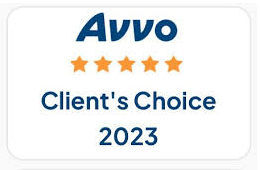- Home
- Practice Areas
- Litigation
- Breach of Fiduciary Duty
- Business & Corporate Disputes
- Co-Counsel
- Commercial Litigation
- Construction Defects
- Contract Disputes
- Copyright & Trademark
- Dissolution Actions
- Evictions
- General Civil Litigation
- Landlord Tenant Disputes
- Latent Defects
- Mechanic’s Lien
- Non-Compete Agreements
- Partition Actions
- Post-Judgment Collections
- Probate
- Business Law
- Asset Purchases
- Business & Corporate Dissolutions
- Business & Corporate Disputes
- Business & Corporate Formation
- Business Succession Planning
- General Business Law
- Business Outside In-House Counsel
- Business Sale & Purchase
- Buy & Sell Agreements
- Commercial Debt Collections
- Commercial Litigation
- Commercial Transactions
- Contract Disputes
- Contract Drafting
- Corporate Bankruptcy
- Copyright & Trademark
- Franchise & Dealership Law
- Mergers & Acquisitions
- Partnership Disputes
- Post-Judgment Collections
- Promissory Notes
- Shareholder Agreements
- Startups #GAStartupLawyer
- Sweepstakes & Prize Contests
- Real Estate Law
- Estate Planning
- Litigation
- Our Team
- Client Testimonials
- Blog
- Contact
- Call Us: 678-882-0830
- Free Consultation: (678) 882-0830

Non Compete Agreements

Non-compete agreements are frequently used in conjunction with employment contracts when an employer wants to protect trade secrets or reduce the possibility of competition should the employer-employee relationship terminate.
What Is a Non-Compete Agreement?
A non-compete agreement, also referred to as a “covenant not to compete” or a “restrictive covenant,” creates a contractual arrangement between an employer and an employee wherein the employee agrees to refrain from engaging in certain competitive activities both while employed by the employer and for a period of time after the employment relationship terminates. Although every non-compete agreement is unique, a properly drafted agreement typically prohibits the employee from doing things such as operating a similar business, retaining customer databases, or making use of unique operational methods and trade secrets.
By way of illustration, imagine that company XYZ provides pest control services in Hometown, U.S.A., and that company XYZ has developed an all-natural and highly effective pesticide that is extremely popular with customers of the business. Understandably, company XYZ does not want to give an employee access to the formula for the pesticide only to have the employee resign from the company and open her own pest control company down the street using the secret pesticide formula.
Can a Georgia Non-Compete Agreement Be Enforced Against All Employees?
The enforceability of a non-compete agreement is governed by state law. A non-compete agreement is enforceable in the State of Georgia; however, like many states, there are restrictions that apply to such agreements, many of which can be found in Georgia’s Restrictive Covenants Act. Under that Act, a non-compete agreement can only be enforced against employees who:
- Regularly solicited customers or prospective customers for the employer.
- Regularly engaged in making sales or obtaining orders or contracts for products or services to be performed by the employer.
- Performed duties such as managing the business or department in which the employer is employed, directing the work of other employees, having hiring and firing authority, or affecting the status of other workers.
- Performed duties of a key employee or professional.
What Restrictions Can Be Included in a Georgia Non-Compete Agreement?
When deciding if a Georgia non-compete agreement is enforceable, a court will consider the time period, geographic territory, and scope of activities restricted to determine if the conditions are reasonable. Although there are no absolute rules, there are some general guidelines to consider with regard to time, place, and activity restrictions.
Georgia courts will typically start with the presumption that a time period restriction of two years or less is reasonable while a restriction that exceeds two years deserves additional scrutiny. Geographic territory restrictions are viewed in light of the type of business involved. For example, using the XYZ pest control company once again, a restriction prohibiting the operation of a competing business within 20 miles might be reasonable whereas a restriction that encompasses the entire state of Georgia would likely be unreasonable. Similarly, the scope of activities restriction should be narrowly tailored to fit a legitimate business purpose. Restricting an employee from working at another pest control company after leaving company XYZ would likely be unreasonable; however, company XYZ does have a legitimate and reasonable interest in preventing an employee from using the pesticide developed by the company. As such, a restriction preventing the use of company XYZ’s pesticide would likely be enforceable.
Speak to an Experienced Georgia Business Law Attorney Today
Whether you are an employer interested in drafting an effective non-compete agreement or a prospective employee being asked to execute such an agreement, it is imperative that you understand the terms of the agreement and whether those terms would likely be enforced. If you have questions about a Georgia non-compete agreement, contact an experienced Georgia business law attorney to discuss how we can help you by calling 678-882-0830.
Blog Posts about Non-Compete Agreements
The FTC Banned Non-Competes: What This Means for You
Aimes at enhancing economic mobility, raising wages, and encouraging innovation, the FTC banned non-compete agreements for all employees, effective September 4, 2024, with the exception of executives with high earnings. Going forward, employers may rely on alternatives, including non-disclosure agreements, non-solicit agreements, and trade secret protections.
READ MORENon-Compete Agreements: How Solid Is Yours?
Non-compete agreements are frequently misunderstood and often misused by Employers. Common pitfalls include failing to properly identify what is being protected, inappropriate use of a non-compete agreement, and failing to review the continuing necessity of such agreements. State law governs the enforcement of non-compete agreements which may include pursuing monetary damages or injunctive relief.
READ MORE







